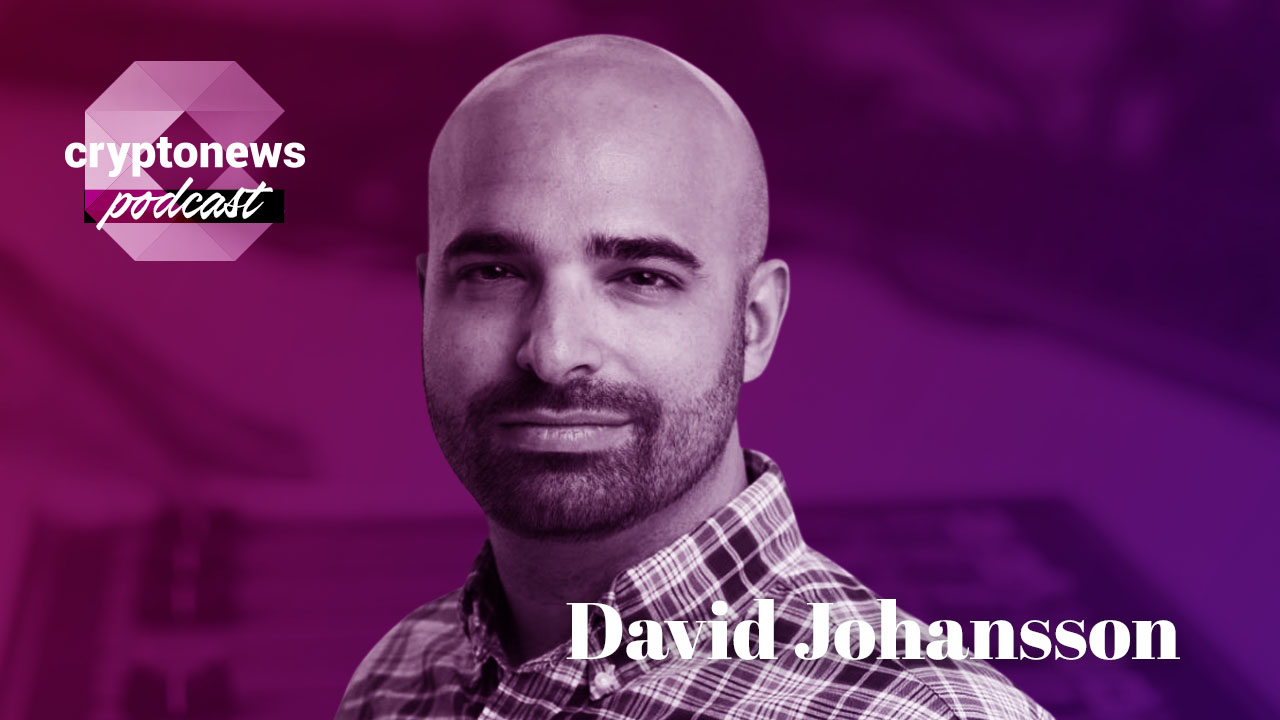David Johansson, CEO of BLOCKLORDS, on Blockchain Gaming, Web3 Gaming Airdrops, and User Acquisition for Web3 Games | Ep. 310

In an exclusive, gaming-focused interview with Cryptonews, the BLOCKLORDS game CEO David Johansson talked about the indestructible link between crypto and gaming.
He told us how the game came to where it is today, despite the obstacle; how the team utilized the circumstances in the space and the knowledge they gained to set up a platform to help others launch Web3 games; and how user acquisition changed over the past six years.
In this exciting interview, Johansson discussed:
- the origin story of BLOCKLORDS and what inspired creating the game;
- BLOCKLORDS dropping 300,000 LRDS to mark more than 60,000 players;
- industry layoffs at companies such as Riot, Epic, Activision Blizzard, and what this means for the future of the industry;
- the possibility of AAA developers venturing into blockchain/Web3 gaming:
- the secret sauce of airdrops for Web3 gaming.
Check out the full podcast episode above, or read some of the many things Johansson and host Matt Zahab talked about.
Marriage Between Crypto and Gaming
Web3 games weren’t really a thing back in 2018 when BLOCKLORDS was born. Notably, this was always a Web3 game, its co-creator noted.
The pitch has always been the same: BLOCKLORDS is an MMO strategy game that’s designed entirely around Web3.
Per Johansson,
“I’ve seen many games come and go. And so definitely that’s one of our strengths as a team; we’ve stood the test of time, we’ve survived the bear market. “
Johansson’s work in the film industry in Hollywood, followed by the gaming industry in China, taught him countless invaluable lessons about creativity and the creation process. And then,
“In 2017, I discovered crypto. I fell in love with it.”
Wanting to start something new, he joined up with co-founder Nicky Li, with whom he has worked since 2014.
He learned about crypto, and as soon as he understood how smart contracts worked, Johansson realized that,
“Gaming and crypto are forever linked.”
Gamers are already used to digital ownership, scarcity, and value. They care about what they do inside a game.
Meanwhile, crypto needs a better onboarding vehicle: a way to reach the masses. “Crypto people handle financial markets the same way gamers handle games essentially,” the CEO said. “So it was just perfect.”
From Zero to 15 Million
The BLOCKLORDS’ team is working on the game’s third iteration now. But the road to this moment was a bumpy one.
In the spring of 2018, the co-founders started looking for investors. However,
“Nobody believed in crypto gaming back then.”
On the gaming industry side, many would state that crypto is a scam. On the crypto side, particularly in the young decentralized finance (DeFi) space, many wondered why they’d bring gaming into a serious financial matter.
But in August 2018, the team won the Best Blockchain Game in NEO’s competition, earning $80,000. “That was essentially our seed funding,” Johansson said.
Building the game was difficult, and the funds quickly ran out. The team, however, won a TRON contest, receiving $30,000. So they launched on Tron, “and that did pretty well.”
However, noted Johansson,
“What we noticed right away from launching blockchain games was that it was easy to get users who were very dedicated and who would spend quite a lot on their game experience.”
But getting users was a problem.
The team of about half a dozen people continued building the game on various chains in 2018-2019, but it was a learning curve with numerous issues popping up. In addition to that, they were living off of grants.
And then, the DeFi Summer of 2020 arrived. By this point, the team had gained extensive knowledge in blockchain gaming.
“We started getting a lot of requests and demands [from other teams to help them make their games.”
That’s when the idea for Seascape came: to build a tech solution for NFT and DeFi gaming.
The Seascape Network launched in 2021. The team raised half a million dollars for it with Binance as the lead investor.
In 2021, following a number of questions about the status of BLOCKLORDS, the team created a new studio, formed a content team, and got to work on the new iteration.
“And investors really went crazy for it.”
The goal was to raise about $4 million, but BLOCLORDS ended up raising $15 million from a number of notable investors, including Makers Fund, Bitkraft Ventures, Delphi Digital, Animoca Brands, Shima Capital, WW Ventures, Spartan Group, Huobi Ventures, Funplus, YGG, and others.
User Acquisition Came Far Over the Years
Web3 user acquisition has matured quite a lot, David Johansson argued. “There’s still a lot of work to do, but it’s definitely gotten better.”
Firstly, the ad platforms have opened up. Promoting blockchain games on social media sites, including Meta and Twitter, became easier.
“It’s much easier to get ads now, and it’s much easier to reach more users with the ads, which is great. And I definitely think our brand potential has grown with the ads.”
It’s not easy for Web3 gaming to go against Web2. It’s not only getting players that’s a problem, but keeping them. However, the ad system is essentially broken – as seen in Web2. And ironically, the way this is being revamped is through Web3.
Meanwhile, there are now many more sophisticated tracking tools, “so there’s a lot of experimentation” being done in targeting Web3 users that were active in the past.
Importantly, the community is a huge part of user acquisition, Johansson said.
“I would say that that is the vertical that really Web3 has an edge over Web2: the community is an integral part of your user acquisition and your user retention. So you need to put a lot of focus on that.”
Among other efforts, BLOCKLORDS rewards users with game drops where they distribute the game’s native token LRDS.
Shift in the Playing Field
Recruiting people to work in Web3 gaming has also become a lot easier. It is no longer a field from which people are running away.
For example, developers would previously not even entertain the idea of working on a free-to-play game. “And now basically every good game is a free-to-play game,” said Johansson.
“A lot of that hate is going to pass. I think there is a brain drain happening from Web2 to Web3.”
Additionally, talented game developers who want to start their own studio will have greater chances of getting the funding as a Web3 project than as a Web2 project.
“I think we would never have gotten the funding we got as a Web2 project. That’s just a fact. And […] strategy games don’t get a lot of investment generally.”
The capital is “much more fluid in Web3,” so projects are getting funded. Some are bad, and some are excellent.
There are more opportunities, so there is more capital in the space, creating more jobs – and all this will benefit the industry as a whole.
The Web2, or legacy gaming, has “a lot to figure out.” And Web3 will start taking some of its share over time, Johansson concluded.
____
About David Johansson
David Johansson is the CEO, Co-Founder, and Creative Director of Web3 strategy game BLOCKLORDS. He is also the CEO of Seascape Network and Metaking Studios, the creator of BLOCKLORDS.
A passionate gamer and industry veteran, Johansson has held numerous creative and production roles on some of the most successful products in their fields – including Crusader Kings, Liberators, and League of Angels – before turning his focus towards building out BLOCKLORDS in 2018.
He never looked back.




